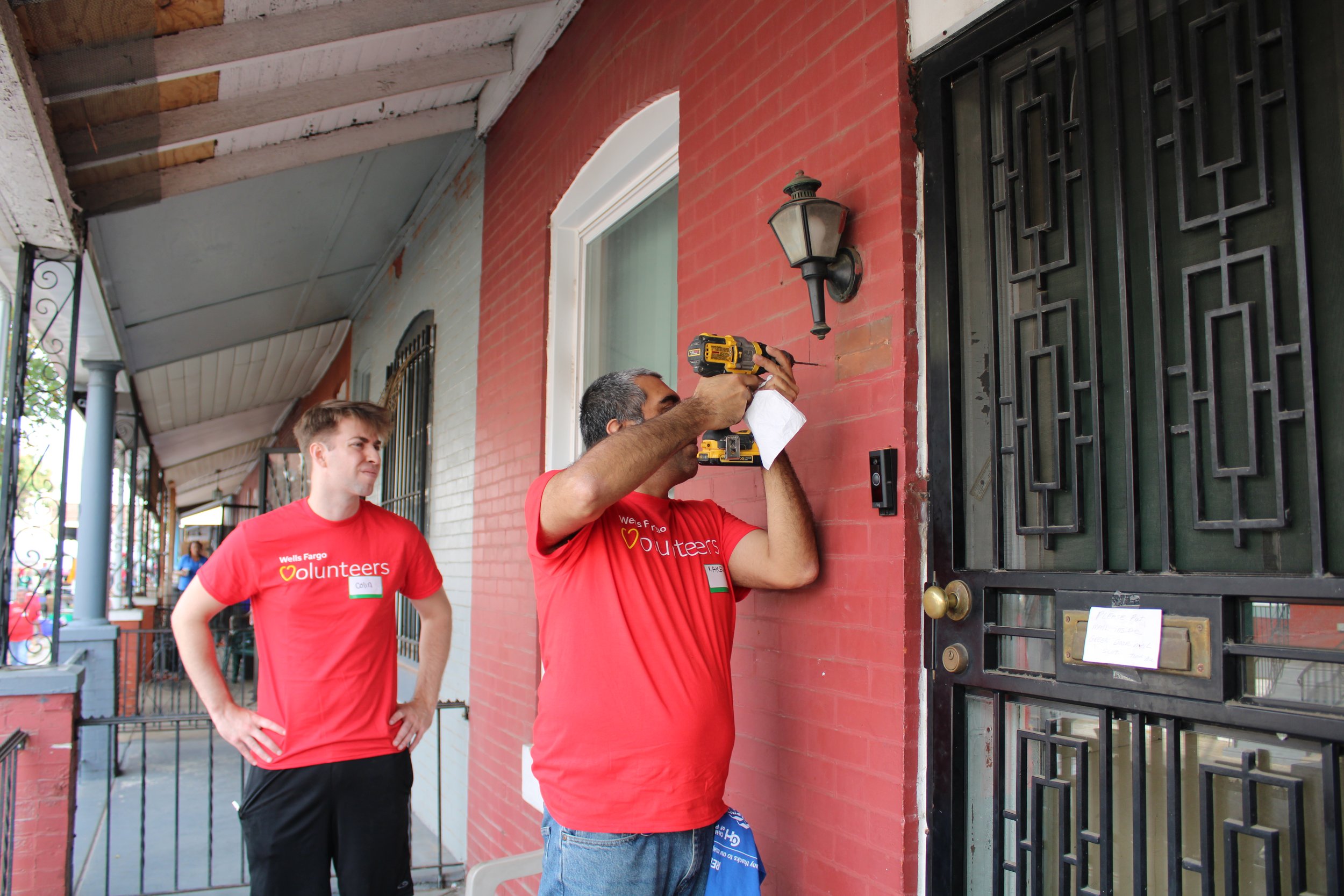The Promise and Priority of Home Repair in Philadelphia
By Stefanie F. Seldin, President & CEO, Rebuilding Together PhiladelphiaWhile on the campaign trail, Cherelle Parker pledged to create 30,000 units of affordable housing if elected. As her first year as Mayor ends, Rebuilding Together Philadelphia (RTP) eagerly awaits a detailed plan from the Parker Administration. Sadly, the goal posts have already moved – the pledge now includes market-rate housing units in that 30,000 number.
That said, 30,000 new and rebuilt housing units offers hope for Philadelphia's future, but its success hinges on making home repairs a cornerstone of this initiative. Nearly half of Philadelphia's homes are over 75 years old, and thousands of owner-occupied properties desperately need critical health and safety repairs that their residents cannot afford. When homeowners lack resources to fix leaking roofs, failing heating systems, or outdated electrical systems, they often face impossible choices between unsafe living conditions and homelessness.
RTP volunteers make repairs on a rowhome in West Philadelphia.
Investing in home repair delivers outsized returns for both residents and the City. RTP averages $18,000 for subcontractors and staff to repair a rowhome -- much less than the costs of displacement, homelessness, and neighborhood destabilization. Philadelphia has already demonstrated success with programs like Repair Restore Renew (RRR), which provides low-interest loans up to $24,999 for home repairs to homeowners with credit scores above 580 and income below 120% of the area median. (RRR was championed by then-Councilmember Parker). Combined with home repair programs like Rebuilding Together Philadelphia, these initiatives have proven highly effective, but demand far exceeds current funding.
As Mayor Parker develops her housing strategy, she must ensure that at least one-third of the 30,000-unit goal focuses on repairing existing owner-occupied homes. And while she’s at it, RTP has other suggestions:
Grow successful repair programs so they repair the whole home, not merely basic systems.
Streamline application processes. Mayor Parker has vowed to create “One Front Door” to make it easier for residents to access city-run home improvement programs. This one front door should be consumer-friendly; i.e., by providing assistance to folks with challenges accessing an online portal.
Expand access to Repair Restore Renew (RRR) to help more working families maintain their properties.
The city should consider expanding eligibility criteria for the Basic System Repair Program and RRR to serve more homeowners caught in the gap between existing programs. The fate of many Philadelphia neighborhoods depends on preserving their existing housing. By making home repair a priority, Mayor Parker can help thousands of residents age in place with dignity while strengthening the fabric of our communities.


